Fourteenth Amendment And Donald Trump
Does the Fourteenth Amendment disqualify Donald Trump from running for president in 2024 — or ever again?
Politics :
A court will decide if Trump is eligible to hold office again following his involvement in the January 6, 2021 attack on Capitol Hill. Last Wednesday, a Colorado judge refused a request from Trump’s lawyers to dismiss the case, meaning it will proceed as planned this week with a ruling expected by Friday.
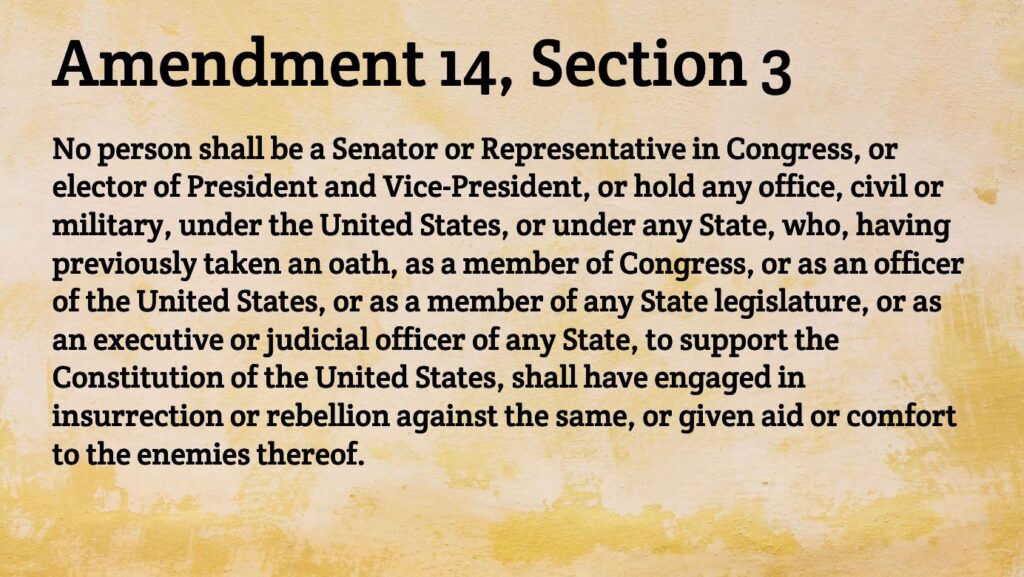
According to The New York Times, 6 Colorado voters filed the case against Donald Trump (which is only 1 of several similar cases around the country). They’re arguing that Section 3 of the Fourteenth Amendment bars from office anyone who “engaged in insurrection or rebellion” against the Constitution after having taken an oath to support it. Donald Trump is believed to have helped incite the violent insurrection against the US Senate and House of Representatives, which would disqualify him from holding federal office.
Last week, lawyers representing the voters called 2 expert witnesses who sought to prove that Trump incited far-right extremists to attack the Capitol and that this constituted “engaging in insurrection,” as those words were understood when the Fourteenth Amendment was ratified in 1868.
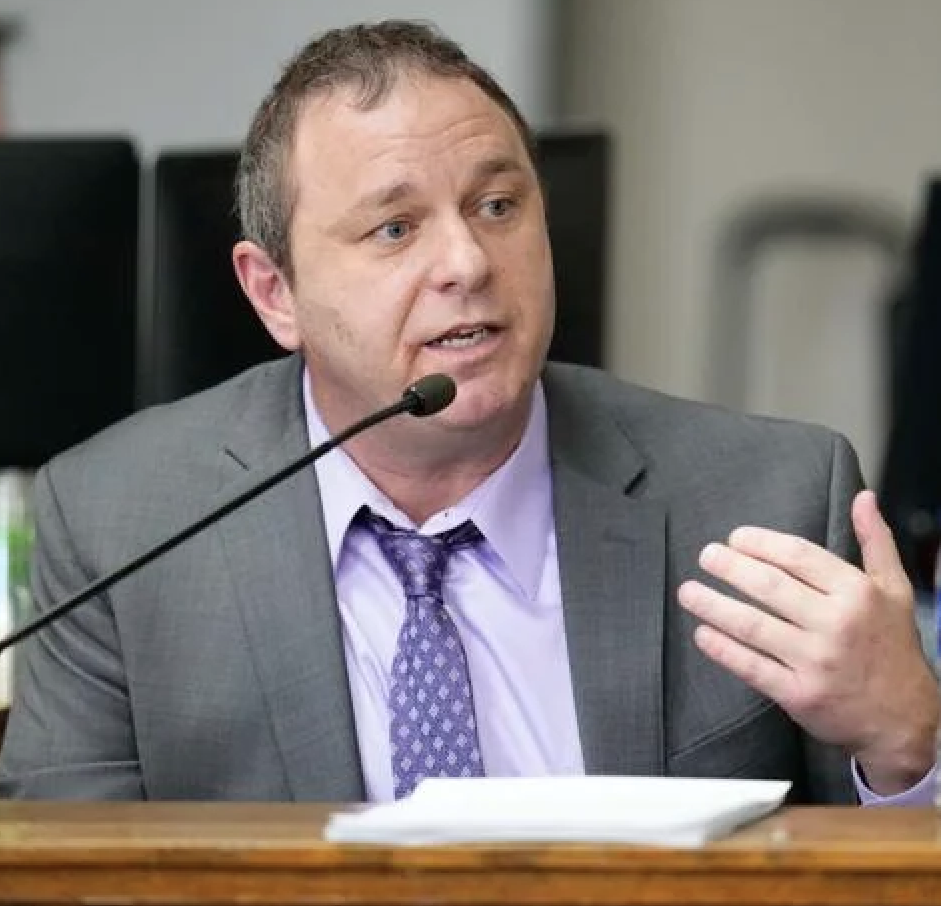
Peter Simi, a professor of sociology at Chapman University and an expert on political extremism, testified that Trump and members of the far right used “doublespeak” language as a call for violence, while still maintaining plausible deniability.
Dr. Simi pointed out that when Donald Trump told the Proud Boys to “stand back and stand by” during a debate in 2020, they took his words as an order to prepare for a task to be assigned later. When he tweeted “Be there, will be wild” just before the events of January 6th, they understood that to be the task. When he repeatedly told them to “fight” in a speech on January 6th, they understood that to mean violence — and saw a brief call to march “peacefully and patriotically” as just for show.
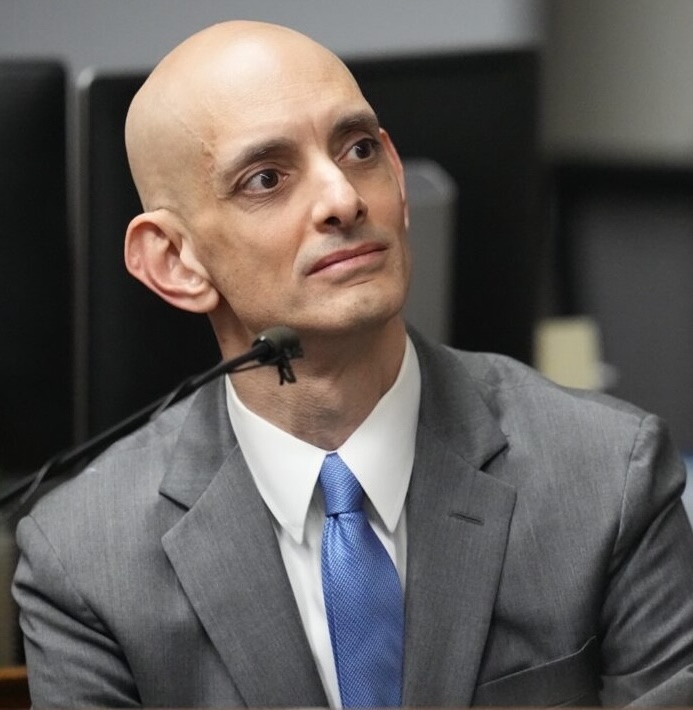
Gerard Magliocca, a law professor at Indiana University, testified that when the Fourteenth Amendment was ratified, the word “insurrection” was understood to refer to “any public use of force or threat of force by a group of people to hinder or prevent the execution of the law.” The word “engaged,” in that context, meant “any voluntary act in furtherance of an insurrection, including words of incitement.”
Professor Magliocca cited congressional debate records, court rulings, legal analyses written by the attorney general at the time, as well as 2 instances after the Civil War (but shortly before the Fourteenth Amendment was ratified) in which Congress refused to seat members. One had written a letter to the editor calling for violence against Union troops, while the other had given $100 to a son who was going to fight for the Confederacy.
Trump’s lawyers fought back with an attempt to use the directed verdict and argued that even if the plaintiffs’ arguments were accepted as fact, that would not legally justify disqualifying him from office. They pointed to the Supreme Court’s 1969 Brandenburg v. Ohio ruling, which says that for speech to be an incitement unprotected by the First Amendment’s right to free speech, it must be “directed to inciting or producing imminent lawless action” and “likely to incite or produce such action.” They also argued that his statements before January 6th were too far removed to meet the “imminent” standard; that nothing he said on that date called for violence; and that, even if it had, his mention of marching “peacefully and patriotically” would negate violent intent.
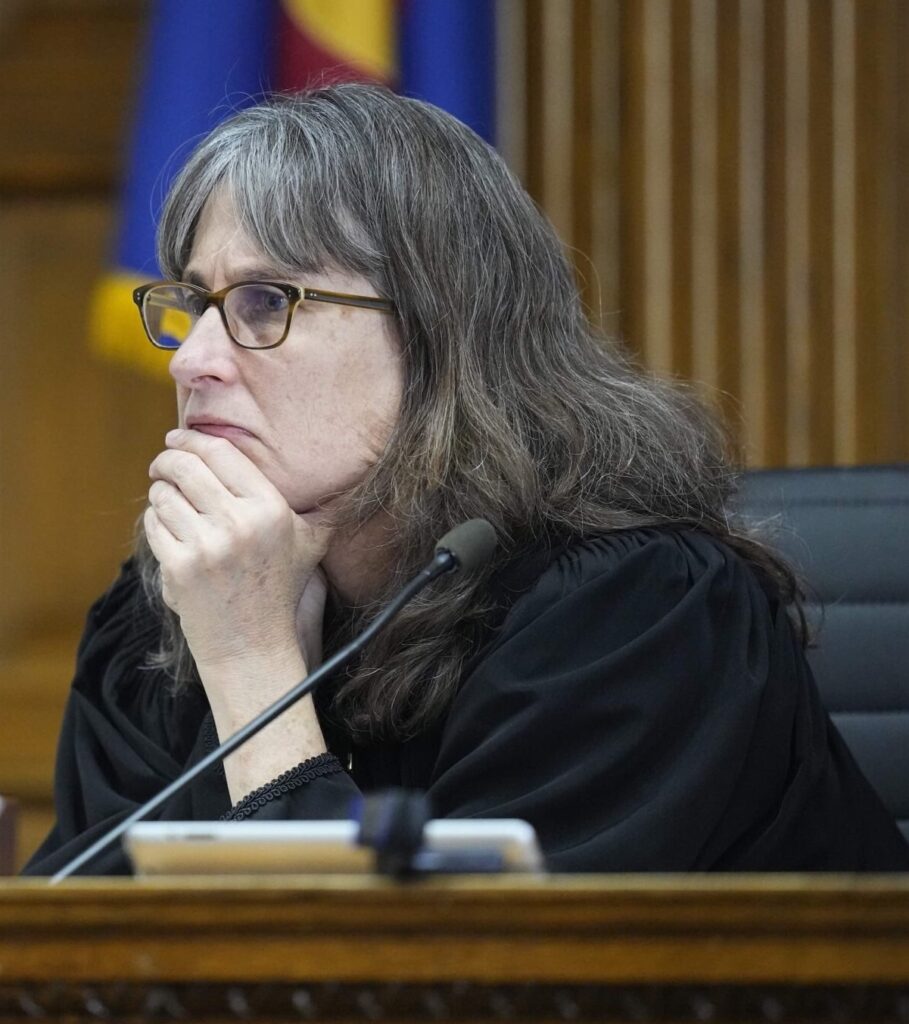
Judge Sarah B. Wallace rejected the dismissal request from the Trump team, stating that she believed the relative weights of the First and Fourteenth Amendments were tricky. She also pointed out that because all of this is unchartered territory, the case holds “significant legal issues, many of which have never been decided by any court.” Therefore, the case should and will proceed as planned.
Interestingly, the Minnesota State Supreme Court is also hearing a similar case against Donald Trump, after a lawsuit was filed by the nonprofit group Free Speech for People, along with former Secretary of State Joan Growe and former Supreme Court Justice Paul H. Anderson.
The lawsuit is asking the court to order Democratic Secretary of State Steve Simon to remove Trump from the primary and general election ballots in 2024. An earlier case was also filed in Michigan.
Could the Fourteenth Amendment actually prevent Donald Trump from running for president? Or, will legal maneuvering and non-stop appeals keep the Teflon Don in the race for The White House?
OK WASSUP! discusses Politics:
Will the Fourteenth Amendment stop Donald Trump?

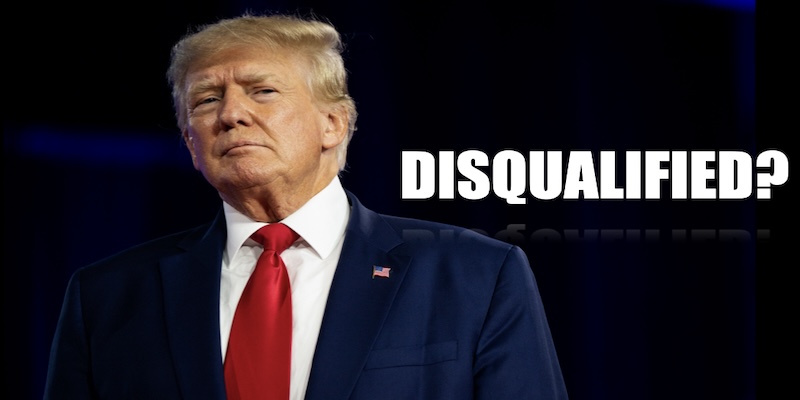
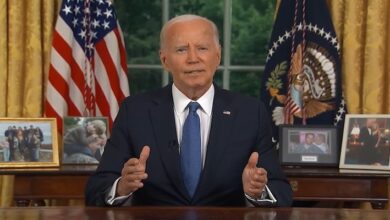
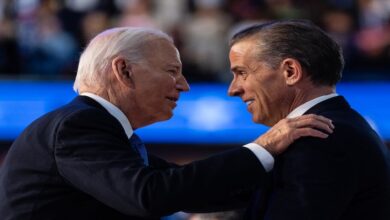

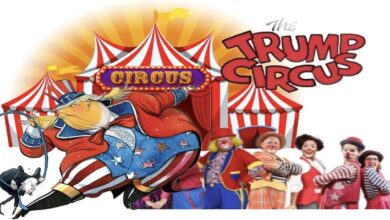
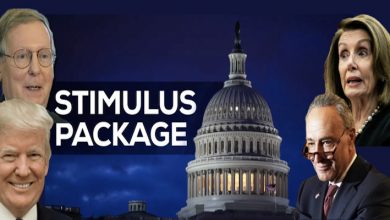
Could the Fourteenth Amendment actually prevent Donald Trump from running for President? […] – DJ
Yes, but only in an ideal America where a treasonous cretin like Trump would never have been able to get within 500 feet of the White House under any cicumstance in the first place!
Unfortunately, we don’t live in an ideal America. We live in today’s America which has mostly lost its way!
ABC News:
The attorney leading a bipartisan campaign to disqualify former President Donald Trump from the 2024 ballot in every state says there’s a “very good chance” a top court in Minnesota, Colorado or Michigan will rule on the issue before the end of the year — teeing up urgent review by the U.S. Supreme Court.
“This question needs to be decided ideally before any ballots are printed, and I hope and expect it will be decided in our favor,” said Ben Clements, chairman and senior legal advisor of Free Speech for People, a legal advocacy group behind some of the constitutional challenges to Trump’s candidacy.
Judges in Colorado and Minnesota last week heard arguments in cases brought by groups of voters alleging an often-overlooked part of the Constitution — Section 3 of the 14th Amendment — bars Trump from their state ballots.
The district court in Colorado is expected to deliver an initial ruling this month.
I was just going to say this Wil. If any court tried to stop Trump from running he would appeal all the way to the Supreme court. He has enough people he put on there they would protect him. That is why we always say election has consequences. He loaded up the court and they will do what he says.
It will be interesting to see how all these states rule and what Trump lawyers do after that. If the states decide not to put him on the ballots I will be watching if they keep him off during the appeals or not.